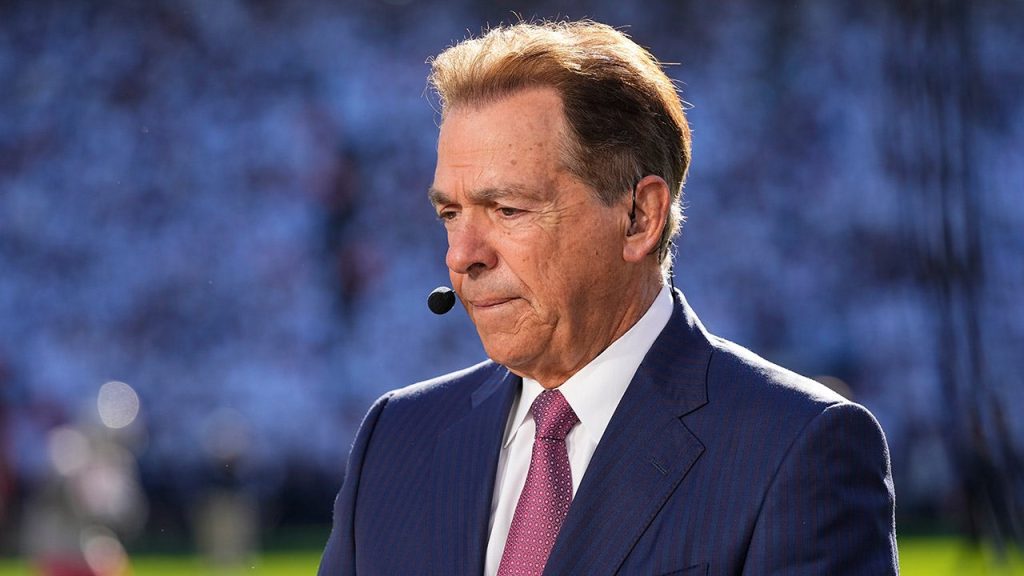Nick Saban, a seasoned and respected figure in college football, weighed into the ongoing debate surrounding Ohio State coach Ryan Day’s performance, offering a staunch defense of the embattled coach while simultaneously chiding the Buckeyes’ fanbase for contributing to a negative atmosphere around the program. Saban’s comments, delivered during ESPN’s “College GameDay” pregame show ahead of the Notre Dame-Indiana playoff opener, addressed the mounting pressure on Day, whose impressive overall record is overshadowed by a recent string of losses to rival Michigan. Saban’s intervention highlights the pervasive issue of external pressures in high-stakes college football, where fan expectations, media scrutiny, and social media commentary can create a volatile environment for coaches and players alike.
Saban’s central argument revolves around the importance of creating a supportive environment for a team, particularly by insulating players from external negativity. He emphasized the need for coaches to foster a culture where players focus on their own development and performance rather than being distracted by outside noise, whether it be from critics, the media, or even passionate fans. He vividly illustrated the absurdity of letting anonymous online negativity impact performance, comparing it to being influenced by “some guy… in his mother’s basement.” This underscores his belief that such criticism should hold no weight in the minds of players or coaches striving for excellence.
Saban extended this philosophy to the fanbase, suggesting that their role should be one of unwavering support rather than criticism, especially in crucial moments like the upcoming College Football Playoff. He argued that negativity from the fans becomes a counterproductive force, undermining the team’s efforts to achieve its goals. He specifically highlighted the upcoming Ohio State-Tennessee playoff game, urging fans to rally behind their team and coach to maximize their chances of success in the national championship race. This echoes the broader sentiment that a unified and positive environment is crucial for any team to thrive under pressure.
The context of Saban’s comments lies in the intense scrutiny faced by Ryan Day, whose Ohio State tenure, while statistically impressive with a 66-10 record, has been marred by a four-game losing streak against arch-rival Michigan. This recurring failure against a key competitor has fueled criticism and speculation about Day’s job security, putting him under immense pressure to deliver results in the playoffs. Saban’s intervention serves as a reminder that coaches operate within a complex ecosystem of expectations and pressures, and that external negativity can significantly impact performance.
Saban’s perspective is particularly significant given his own immense success and experience in navigating the high-pressure world of college football. Having achieved a remarkable level of sustained success at Alabama, he understands the importance of managing external pressures and fostering a positive internal environment. His comments, therefore, carry the weight of experience and serve as a valuable insight into the challenges faced by coaches at the highest level of the sport.
In conclusion, Saban’s defense of Ryan Day goes beyond simply backing a fellow coach; it represents a broader commentary on the pressures of college football and the importance of creating a supportive environment for teams to flourish. By advocating for a focus on internal development and shielding players from external negativity, Saban highlights the crucial role that coaches, fans, and the media play in shaping the landscape of the sport. His call for positivity and unity around the Ohio State program serves as a reminder that success in college football, especially at the highest level, depends on a collective effort to create an atmosphere conducive to optimal performance.

